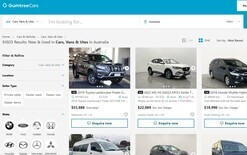Clean-car standard hits brakes

The Green Party’s Julie Anne Genter has hit out at NZ First for killing off plans to encourage people to buy more electric vehicles (EVs) and cut the number of fossil-fuel cars.
NZ First had already blocked a feebate scheme – the first part of the government’s so-called clean-car policies – in February this year.
It has now also stopped the second part of the policy, a clean-car standard, from being introduced ahead of the general election in September.
Genter, pictured, Associate Minister for Transport, is disappointed the proposals are not progressing and says NZ First never put forward a “credible” alternative.
In July last year, Genter unveiled the government plans that would see the likes of EVs attracting discounts of up to $8,000 and high-emitters being penalised. The feebate scheme, officially known as the clean-car discount, has been supported – in principal – by the automotive industry, while the clean-car standard, also called the fuel-economy standard, has been condemned as unworkable in the form it has been proposed.
While NZ First scuppered any roll-out of the “feebate”, political negotiations continued over the clean-car standard, which aims to set emissions goals for imported vehicles. Those standards would have been gradually introduced from 2022 to 2025.
“It’s unclear why NZ First opposed this proposal, which would have meant more electric and hybrid cars for New Zealanders,” Genter tells Stuff.
She says cars are a major source of climate-damaging pollution and any delay in reducing transport emissions will create pressure to make cuts in other sectors, such as agriculture.
NZ First says the clean-car policies were not part of the confidence and supply agreement it negotiated with Labour, so it did not have to proceed with the legislation.
A spokesman for the party tells Stuff the clean car standard cabinet paper was only sent to NZ First for consultation on May 29, 2020, which meant there wasn’t enough time to legislate the policy.
NZ First also objects to the schemes being introduced at a time when car dealers are feeling the economic effects of Covid-19, and it believes the matter should be put to the electorate.
After the feebate rebuff, James Shaw, co-leader of the Greens, said his party will take the policies to the election if necessary.
Genter says the clean-car standard would have led, from 2023 onwards, to more electric and fuel-efficient cars being available on the market and that importers would have had more than two years before any new requirements kicked in.
Chris Bishop, National’s spokesman for transport, says the backdown is humiliating for the Greens.





